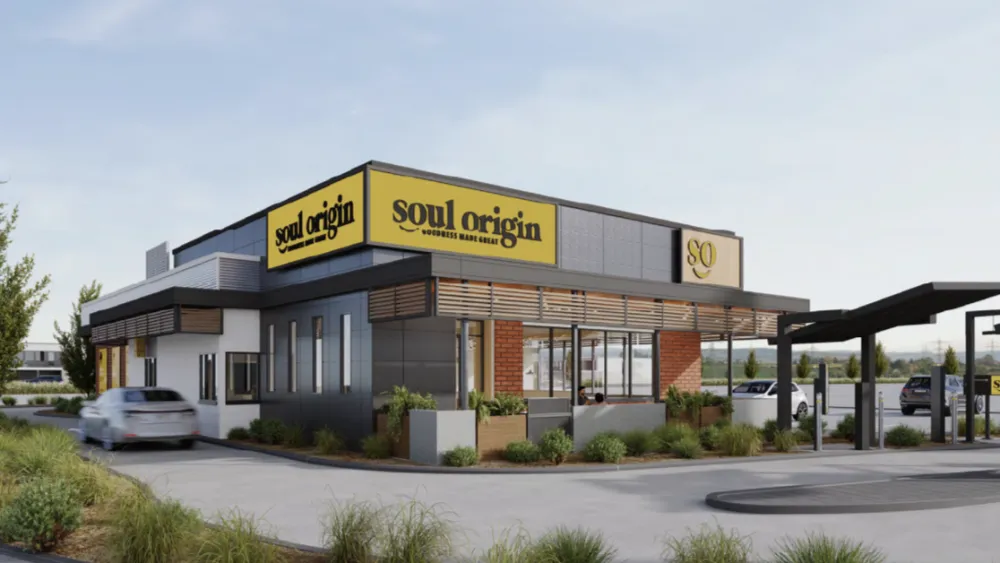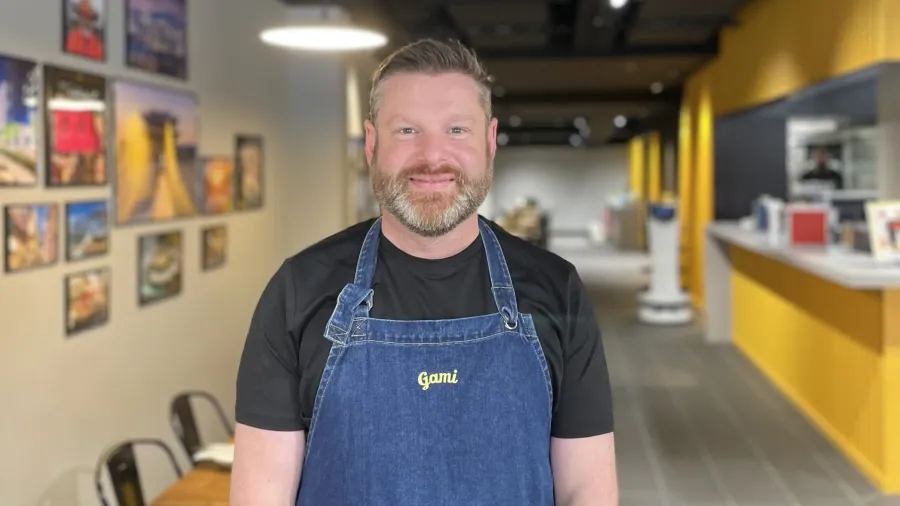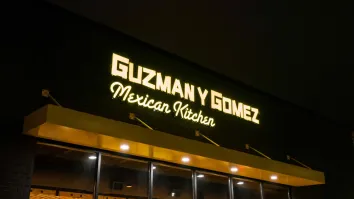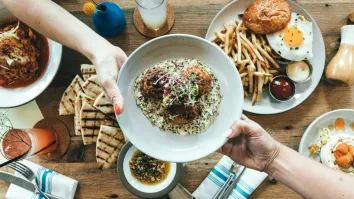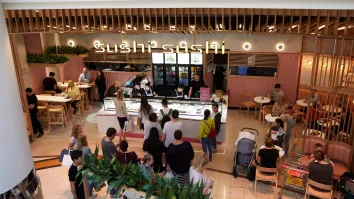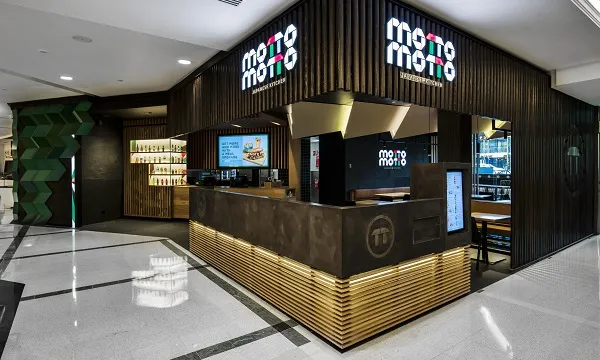
Motto Motto is bridging the gap between Japanese fine dining and the humble ramen shop
The chain wants to redefine a new era in Japanese cuisine.
Brisbane-based Motto Motto made headlines when it announced that it is looking to shake up Australia’s restaurant industry and enter the franchising sector.
Brought to life from the acclaimed Japanese restaurant, Sono, Motto Motto brings a boutique approach to Japanese cuisine, combining fine dining ingredients and quality with contemporary design to make a premium experience without the exorbitant prices.
Japanese food has always been an Australian staple. But aside from the number of ramen shops and sushi joints all over Australia, premium quality Japanese food has been limited to fine dining establishments.
Seeing a gap in between the two segments, Motto Motto hopes to bring a new kind of quality Japanese food to consumers through a controlled expansion with a central innovation kitchen that will focus on product innovation.
The menu, which like Sono, includes its tuna and Wagyu beef, is designed to give the brand an edge in product quality in a market where sushi is “widely available but rarely restaurant quality”.
“We do not believe there is a quality, full service Japanese QSR in the market - just the usual sushi kiosks, gyoza bars and ramen shops,” Chief Operating Officer Tamas Olah told QSR Media in an exclusive interview.
“We are well placed to meet the needs of this clear gap in Australia. Also, millennials are more than ever craving high quality food at reasonable prices and with the fine dining market becoming more entrenched in the 'treat' or 'for occasion' categories we aim to take this great brand to more Australians.”
Indeed, as more consumers grow their appetites for premium products, even tried and true fast food giants like McDonald’s are turning premium. IBISWorld forecasted as early as 2015 that premiumisation will affect all areas of fast food, opening up an opportunity that Motto Motto is happy to seize.
(See also: Can fast food heavyweights withstand the premiumisation wave?)
A challenging transition
As COO, Olah has the task of seeing this goal accomplished. Starting out as a kitchen hand and working his way up through various roles and into senior management for 15 years in hospitality firms across the UK, Hungary, and Australia, Olah has gathered a versatile skill set that he hopes will be able to communicate the big picture strategy to diverse teams and transform their vision into reality.
“The COO role at Motto Motto is very broad. It is a mixture of being hands on and strategic with responsibilities covering restaurant operations, central kitchen operations, human resources & training, systems & technology, store openings & supply chain,” he said.
“I have always had an eagerness to do more, and do it better. As well as being hands on gaining industry experience, I have completed business and hospitality management degrees. Additional to this I have studied video game design and programming which has assisted me in thinking outside the box and with the technology part of my role.”
This versatility will come in useful in navigating the transition from a fine dining business model to a quick service one. And it is far from easy.
Currently, Motto Motto has five locations in Queensland and one in Sydney. The challenge is in building entirely new systems in those places, setting up processes and equipment that have not existed beforehand.
“We have a passionate managing director, William Liu, who says nothing is impossible and has given the executive team a license to be innovative. If something does not do what we require it to do, in the time we require it to be done, we will build it or create it ourselves!” Olah said.
Not that the brand is entirely without an advantage. Olah said that Motto Motto’s product line is already of the highest quality and has successfully created a positive reception with their customers, establishing the brand’s food credentials right out the gate. The brand’s central production kitchen in Brisbane helped in keeping this quality consistent.
Moreover, Olah and his team are utilizing innovations in technology to enhance their operations.
“The product we are creating for the franchise market is all built around technology to support profit and not just sales growth for individual sites. We have systems for rostering, inventory, finance, customer experience and quality. We have built an in-house Business Intelligence System. This will give stores and franchisee’s live, real time data and profit & loss,” he said.
“Developing this in house to suit our brand’s unique needs and to be a profit-focused franchisor we have invested hundreds of thousands of dollars into this project. Our CFO, Lisa Yao has been instrumental in ensuring these platforms create huge amounts of value for our franchise partners which will be vital in setting us apart from all other food franchises.”

Motto Motto's Seared Salmon & Avocado. Photo: Supplied
A “no compromise” approach to quality
The core of Motto Motto’s strategy is in maintaining pillars of service quality and a high degree of franchise support throughout its expansion.
The Group’s executive chef, Ryuji Tomihara, has complete control on the taste and quality of the brand’s menu. Tomihara sits within the brand’s executive team to ensure the consistency and authenticity of their products.
Meanwhile, the equipment brought in to support the transition have been imported, retrofitted, and even created and engineered specifically to suit the brand’s needs and achieve “Motto Motto Grade”. This allows the company to serve its quality food without sacrificing speed of service and without the need to employ highly skilled chefs across all its outlets.
“We have a no compromise approach to quality,” Olah said.
“People are sick of eating frozen patties jazzed up with some fancy words around providence or quality. Our wagyu beef is exactly that - 100% wagyu beef, not just twenty or so percent of the frozen burger patty mix. We do not just talk about them, our food and chef credentials are genuine,” he added.
The vision, Olah said, is to create a franchise that not only disrupts Australia’s casual dining market, but one that redefines what it means to be in the restaurant business.
Matt Fickling, previously the chief of premium burger chain Huxtaburger, was brought in to start telling the Motto Motto story through leading Motto Motto’s brand & marketing department and assist its expansion through an additional franchise strategy. Expansion in Australia is scheduled for 2020 and 2021 with plans to expand overseas thereafter.
“The trend is for a quality menu at accessible prices with a focus on awesome customer experience. Australian tastes have changed over the years seeing the rise of categories like sushi, Vietnamese and Mexican. The burger scene, particularly the American segment is over saturated and getting stale,” Olah said.
“Japanese food is an Australian favourite, but it is usually reserved for high cost bespoke fine dining restaurants or alternatively, one dimensional gyoza bars or ramen shops. We are very pleased to be meeting the needs of the market and providing a full line Japanese restaurant offer built on fine dining principles and no fine dining prices.”
